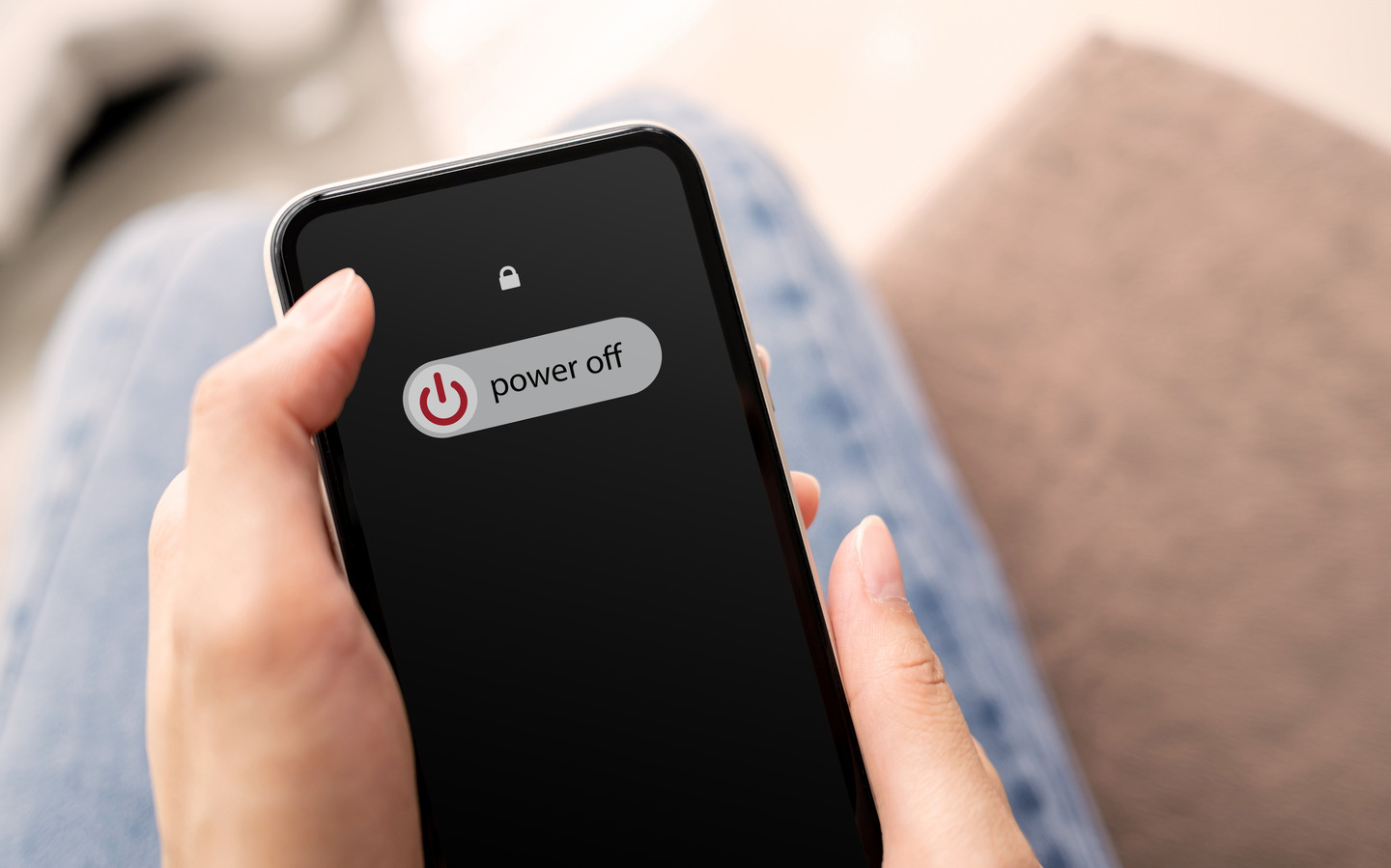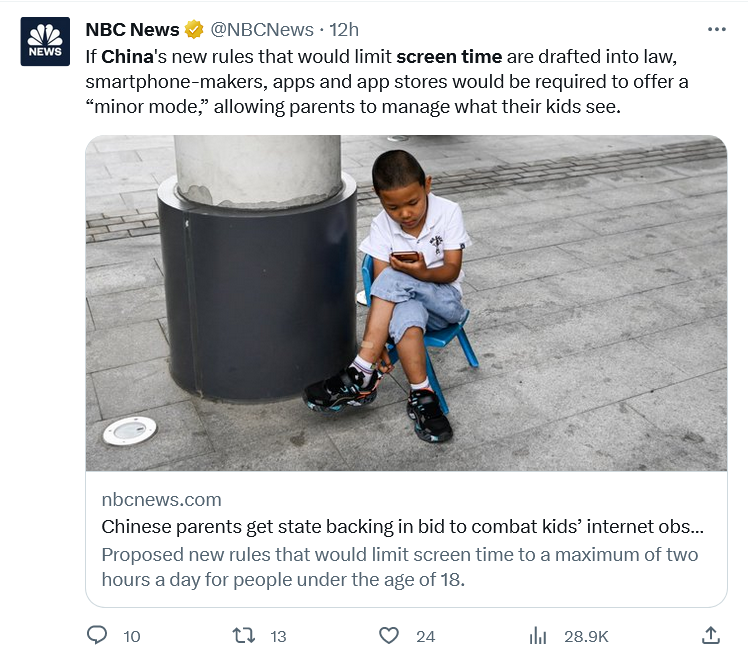Who should set children’s screen time limits?

• China plans to legislate children’s screen time limits.
• But it intends to give the job to technology providers, rather than parents.
• The outcome of limiting children’s screen time remains to be seen.
China is about to make screen time limits for young people an actual law.
Reuters reports that China’s cyberspace regulator announced Wednesday, August 2nd, that children under the age of 18 should be limited to a maximum of two hours a day on their smartphones.
Smart device providers have been asked by the Cyberspace Administration of China (CAC) to introduce ‘minor programs’ that would prevent users under 18 from accessing the internet on mobile devices from 10pm to 6am.
The CAC said there would also be more specific timers to be set by providers: 16-18-year-olds would be allowed two hours a day, children between eight and 16 would get one hour and children under eight would get just eight minutes.
Parents can opt out of the screen time limits, the CAC said, although again it would be the responsibility of providers to enable this.
Investors were unimpressed by the news, and shares in Chinese tech companies have been sent tumbling; shares mostly fell in afternoon trading in Hong Kong after the CAC published its draft guidelines.
The draft is open to public feedback until September 2nd.

Do young people need screen time limits? Source: REUTERS/Aly Song/File Photo.
Xia Hailong, a lawyer at Shanghai Shenlun law firm, said the rules would be a headache for internet companies.
It would take “a lot of effort and additional costs to properly implement these new regulatory requirements,” he said.
“The risk of non-compliance will also be very high. So I believe that many internet companies may consider directly prohibiting minors from using their services.”
This isn’t the first time that the government has stepped in to alter young peoples’ use of technology. In recent years, Chinese authorities have grown concerned about rates of myopia and internet addiction among young people.
In 2021, the government imposed a curfew for video game players under 18, a massive blow to gaming giants like Tencent. Limits of three hours a week were imposed on what the government called “spiritual opium.” There was a similar crash in share-prices in Chinese gaming stocks.
Video-sharing platforms like Bilibili, Kuaishou and ByteDance have since 2019 offered “teenage modes” that restrict the users’ access to content, and the duration of use.
Bytedance’s Chinese answer to TikTok, Douyin, bars teenagers from using it for more than 40 minutes.
Screen time limits a parental responsibility?
What’s remarkable about China’s proposed action is that it will be directed by smart device and internet providers. In the UK and America, similar restrictions can be implemented on social media apps and games, but parents have to opt in.

Off means off with screen time limits – but who has control?
For example, TikTok (also owned by ByteDance) has parental controls that it calls “family pairing.” Parents can link their child’s account to their own and control direct messages, set screen time limits, and turn on/off restricted content directly from their own device.
A setting called “digital wellbeing” can also be turned on to set screen time limits on app use. It allows for more restrictions on children’s accounts, blocking videos flagged as inappropriate (although not everything inappropriate is flagged, so it’s not failsafe).
The issue with regulating screen use is that, deep down, we all know that the less screen time, the better. Even though technology has become an indispensable part of modern life, its negative aspects can’t be understated.
However, business-wise, it doesn’t pay to acknowledge those drawbacks. The lack of distinct regulation from government bodies makes it very easy for tech companies to find loopholes; parents could adjust their child’s settings – but everybody understands that they probably won’t.

Limited to two hours a day – could YOU do it?
READ NEXT

How AI can help human wellbeing
It’s certainly far less of a headache for a parent to enforce the law than it is their own rules – if it’s “the law,” parents get to pass on the responsibility for the unpopular action to an unseen external authority. What remains to be seen is the impact of limited phone use on China’s young people, and whether legislative change is a trend that will be followed globally.










